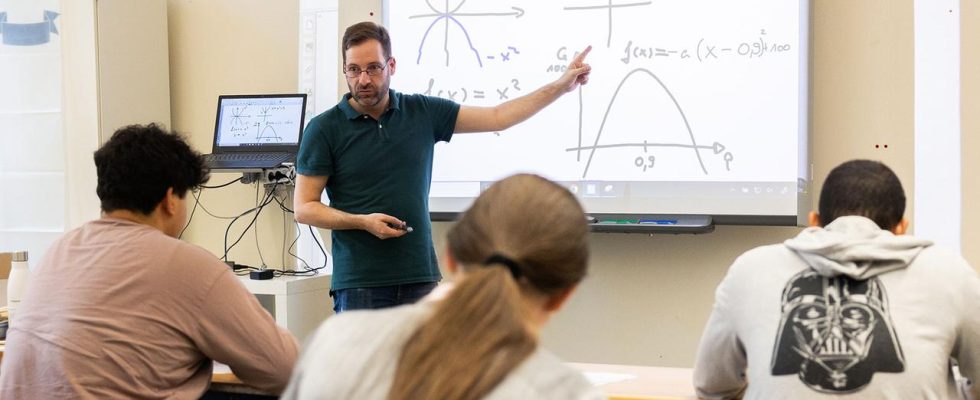The federal, state and local governments spent more on education last year – a total of 176.3 billion euros. Per capita spending rose to 2,090 euros. Experts are calling for significantly more investment in the education sector.
Federal, state and local government spending on education rose to 176.3 billion euros in 2022. That was around 5.3 percent or 8.9 billion euros more than in 2021.
Around half of this, 87.5 billion euros, went to schools in 2022, as the Federal Statistical Office announced. 40.5 billion euros went to child day care (23 percent) and 35.4 billion euros to universities (20.1 percent).
The states bear two thirds of the expenses
Converted to the total population, public budgets spent a total of 2,090 euros per inhabitant on education in 2022 – 79 euros more than in the previous year. A large part of education spending comes from the state budgets. They spent a total of 122 billion euros on education, making up a good two thirds (69.2 percent) of public education spending. Compared to 2021, the federal states’ spending increased by six billion euros (plus 5.2 percent).
At 12.5 billion euros, federal education spending in 2022 was 0.6 billion euros (plus 4.7 percent) above the previous year’s value. Of this, 4.9 billion euros (39.3 percent) were used for universities and 4.1 billion euros (32.9 percent) for supporting educational participants.
Experts are calling for significantly more investment
The share of public education spending in gross domestic product (GDP) in 2022 was at the previous year’s level at 4.6 percent. In 2020, however, the share of GDP was 4.8 percent. In view of the poor performance of German students in the international PISA comparison test, experts are calling for significantly more investment in this area.
For the trade union-affiliated Hans Böckler Foundation, the statisticians’ figures show that Germany is missing out on important opportunities. “This not only deprives children and young people of future opportunities. The country is also deprived of the skilled workers we need to overcome the challenges that lie ahead of us,” explained the scientific director of the Economic and Social Sciences Institute (WSI). of the foundation, Bettina Kohlrausch. There needs to be extensive and constant investment in the education sector. Kohlrausch pointed out that investments in early childhood education had only increased by one billion euros and that their percentage share of total education spending had even decreased slightly.
The performance at German schools is worse than ever and only mediocre compared to other countries. In 2022, the results of 15-year-olds in mathematics as well as reading skills and natural sciences were significantly worse than in 2018, as the current Pisa study by the OECD industrialized countries group shows.

